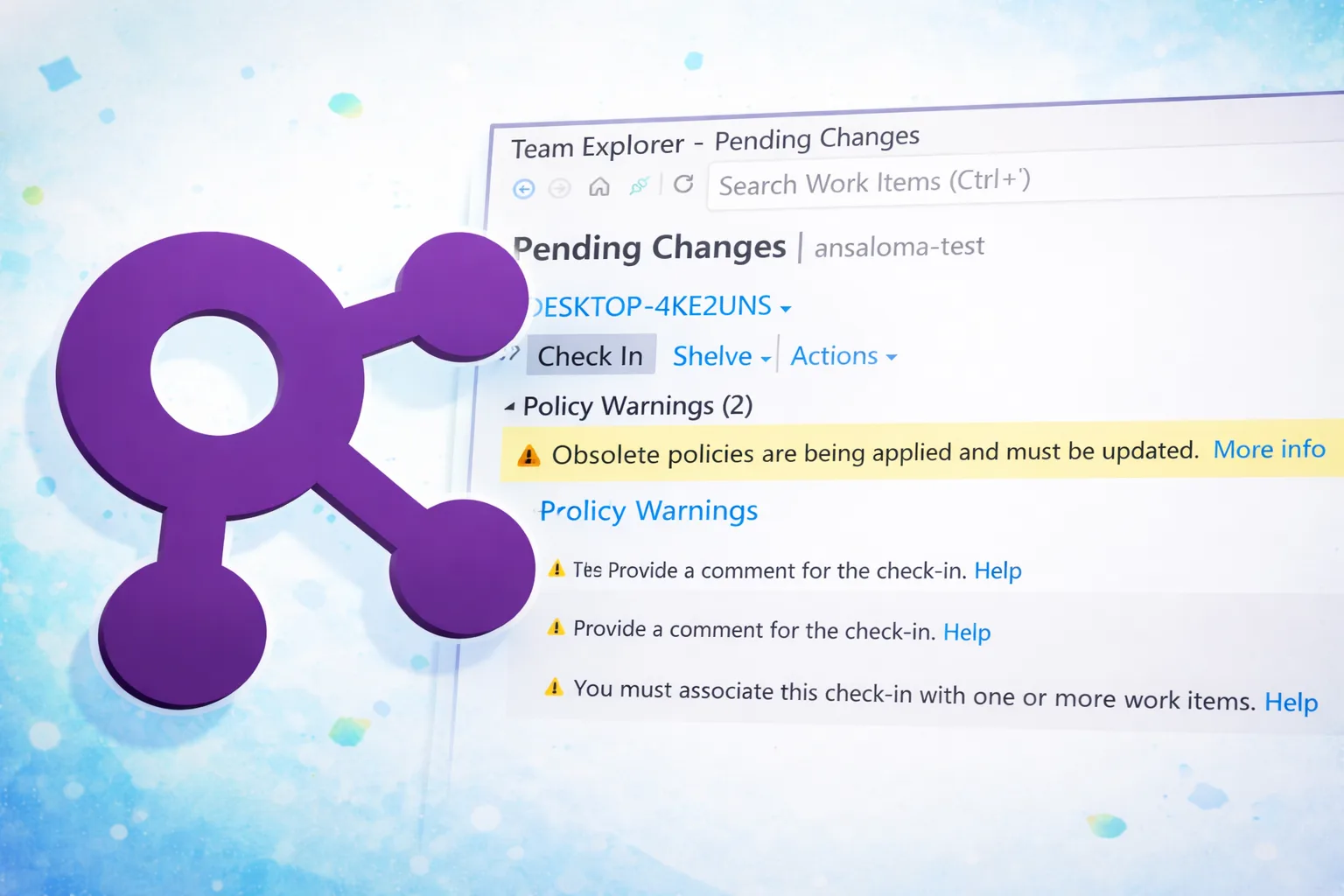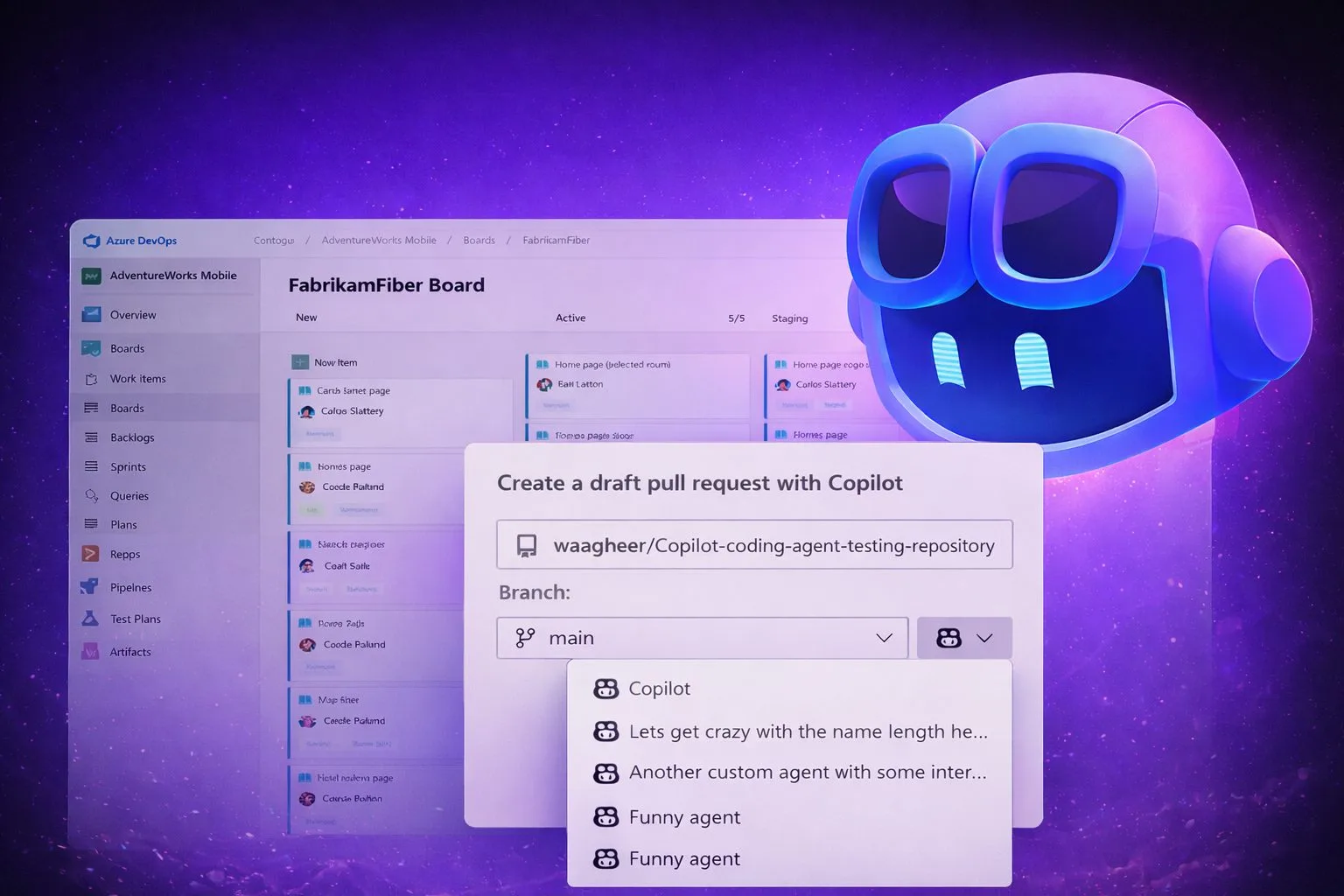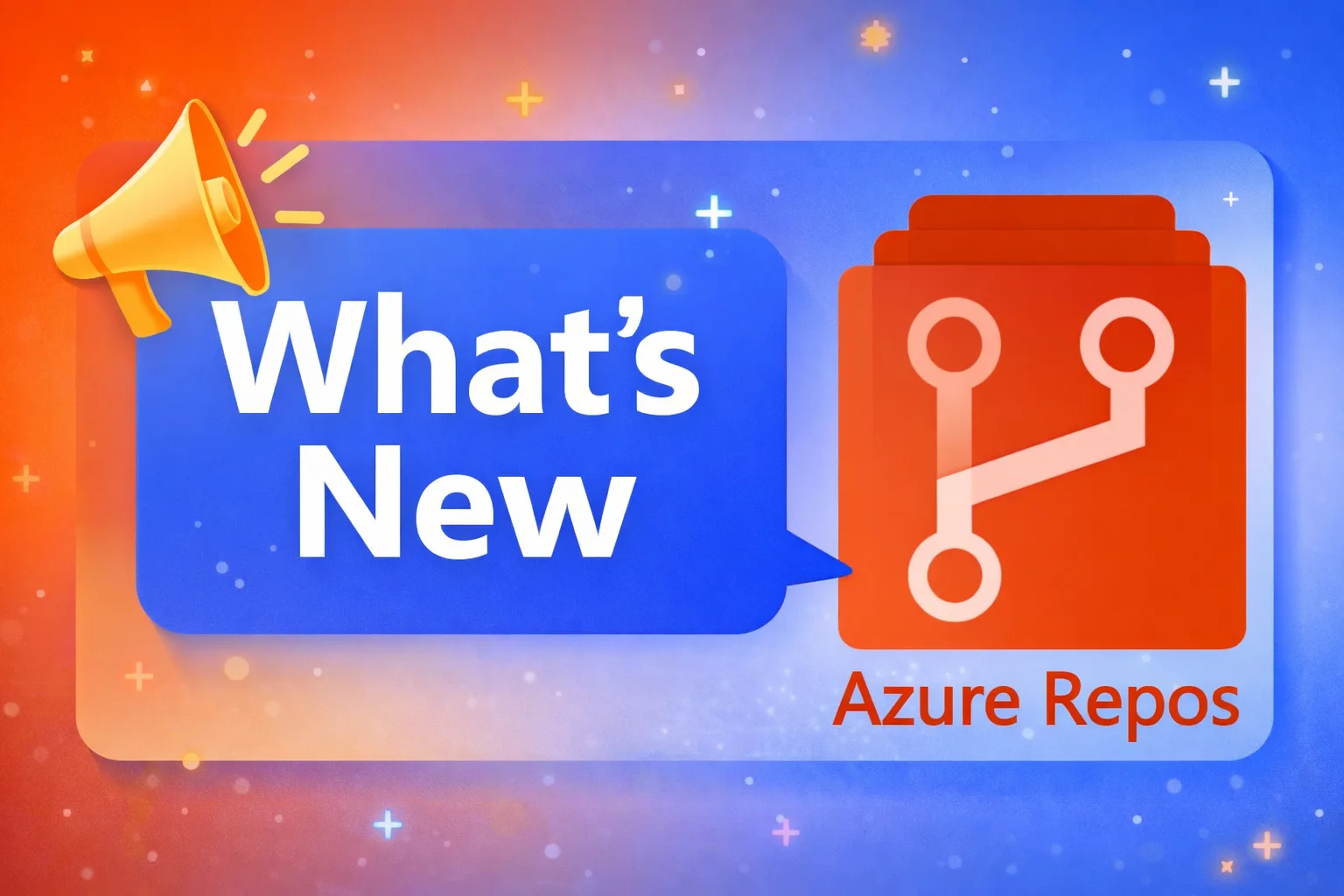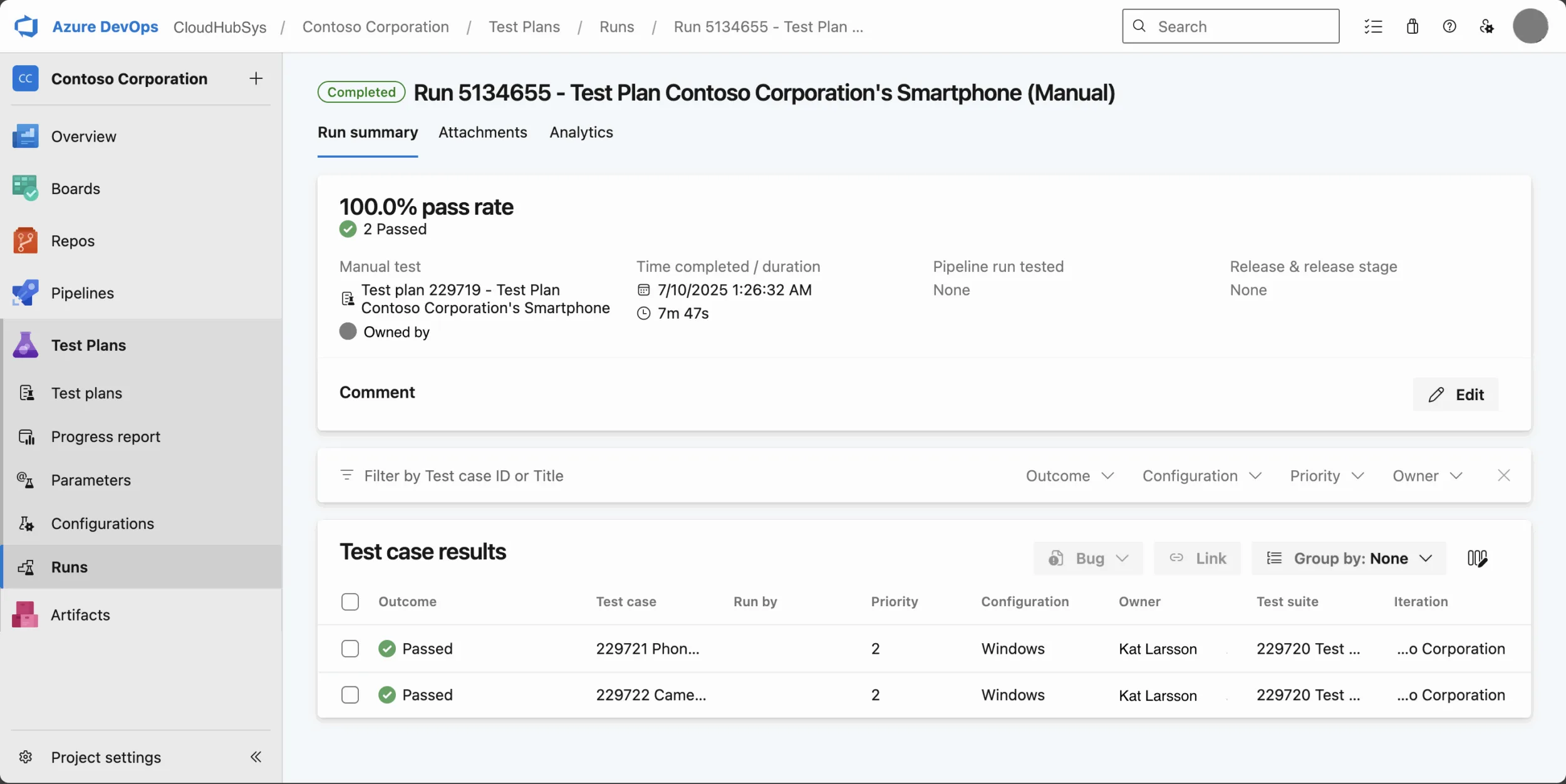Azure DevOps Blog
DevOps, Git, and Agile updates from the team building Azure DevOps
Latest posts

Updates to Team Calendar extension
We are excited to release a new update to the Team Calendar extension. This update includes a series of visual refinements across the extension, introducing a more consistent design language, smoother transitions when expanding and collapsing sections, improved contrast for better readability, an updated color palette aligned with Azure DevOps, and clearer, more consistent icons throughout the experience. Side Panel UI Improvements The side panel has received a complete visual overhaul with a modern, clean design that better integrates with Azure DevOps. Enhanced Summary View The Calendar Summary panel has...

TFVC Remove Existing Obsolete Policies ASAP
In April 2025, we announced the deprecation schedule for legacy TFVC check-in policies. This change was required due to limitations in how those policies were previously implemented and stored. The old policies have been marked as obsolete, and you can replace them by selecting the equivalent updated policy. We are currently in Phase II of this transition. During this phase, you can still replace obsolete policies through Team Explorer. When attempting to check in, you’ll also see a notification indicating that your configuration is out of compliance and still using obsolete policies. The final phase of this ...

Condensed views on Kanban and Sprint boards
One of the challenges teams face when working with large boards or displaying multiple fields on work item cards is limited screen space. This became even more noticeable with the rollout of the New Boards hub, which introduced additional spacing and padding for improved readability. While this enhances clarity, it can also reduce the number of cards visible at once. For example, if a work item contains a dozen or more tags and several custom fields, a single card can easily consume a significant portion of your vertical space. In Delivery Plans, we addressed this challenge with the condensed view option, where ...

February Patches for Azure DevOps Server
We are releasing patches for our self‑hosted product, Azure DevOps Server. We strongly recommend that all customers stay on the latest, most secure version of Azure DevOps Server. The latest release, Azure DevOps Server, is available from the download page. To make it easier to find and apply the latest patches, we are sharing patch details in the table below. Each entry includes the Azure DevOps Server version, a direct download link for the patch, and a link to the corresponding release notes with additional details. ⬇️Azure DevOps Server Patch Download ✅Verifying Installation To verify that the patch is ...

Azure Boards integration with GitHub Copilot includes custom agent support
We recently released the GitHub Copilot Coding Agent for Azure Boards to all customers. If you’re not already familiar with it, we recommend taking a few minutes to read this blog post for an overview and details. One of the top requests from customers using the GitHub Copilot Coding Agent for Azure Boards has been the ability to select and use custom agents defined at the GitHub repository or organization level. In this update, we’re excited to share that support for custom agents is on the way. 🤷♀️ What are custom agents? Custom agents in GitHub Copilot are tailored versions of the Copilot coding agent that...

Azure Boards additional field filters (private preview)
We’re introducing a limited private preview that allows you to add additional fields as filters on backlog and Kanban boards. This long-requested feature helps teams tailor their views, focus on the work that matters most, and provide feedback as we iterate toward general availability.

What’s new with Azure Repos?
We thought it was a good time to check in and highlight some of the work happening in Azure Repos. In this post, we’ve covered several recent improvements, along with a preview of features that are coming soon. To stay up to date, be sure to visit the Azure DevOps Roadmap. These changes have either already been released or are currently rolling out. Be sure to check the sprint release notes for full details. Breaking Change: Disabling Obsolete TFVC Check-In Policies Back in April 2025, we shared changes to how TFVC check-in policies are stored. These updates affect TFVC projects using policies such as Build (r...

The New Test Run Hub is Going Generally Available!
Delivering high-quality software requires clarity, speed, and collaboration. That’s why we introduced the New Test Run Hub in Azure Test Plans. A modern, streamlined experience designed to make test execution and analysis fast and intuitive. And we’re excited to announce that this experience is moving to General Availability (GA) for the Azure DevOps Services throughout January 2026. Why the New Test Run Hub? The new hub centralizes test execution for both manual and automated runs, giving teams: Your Feedback Matters Based on your feedback, we’ve made several improvements ahead of General Availabi...

Work item linking for Advanced Security alerts now available
Security vulnerabilities don't fix themselves. Someone needs to track them, prioritize them, and actually ship the fix. If you've ever tried to manage security alerts alongside your regular sprint work, though, you know the friction: you're looking at an alert in one tab, switching to your backlog in another, trying to remember which vulnerability you were supposed to file a bug for. We shipped work item linking for GitHub Advanced Security for Azure DevOps alerts to fix this. It's now generally available and it does exactly what it sounds like: you can link work items in Boards directly to security alerts. Note...
